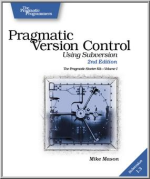Mike is currently…
trying to be Canadian
[ subversion book ]
obligatory book plug
[ syndicate ]
rss 2.0 feed for boy meets world
[ contact ]
drop me a line
[ about ]
this is mike mason's weblog
[ eskimoman.net ]
original web pages
Thu, 29 Jan 2004
This is an archived blog post. I've switched to using WordPress as my blogging software and have not migrated all my old posts. I believe strongly in not letting an old link die, so this page continues to work. Please do visit mikemason.ca/blog to read newer posts.
Unit Testing is about Going Faster
Extreme Programming is about taking all the best practices in software development, and cranking them up as high as they’ll go. Spinal Tap had amplifiers that went up to 11 – we have XP. Testing is generally agreed to be a “good thing”, and so with XP we test all the time, by writing unit tests that exercise every piece of code. Test Driven Development encourages us to write the tests before the code, thus driving the design by asking questions about what the code should do – what do we want to test?
A few nights ago I had a discussion with a colleague about the code he’d written that day. He was excited and happy because he knew exactly where he’d wanted to take a piece of code, and had pretty much just written it straight off. He was concerned, though, that he’d not used TDD to develop the code. My response was to ask him why he felt that he needed to use TDD if he was so confident about how he wanted the code to look.
XP, and therefore Unit Testing, is about delivering working software quickly. That means you need to be able to write the code quickly, get it to work (avoid and fix defects) and to be able to change and maintain the code in future. The fastest way to deliver working software is to write correct code, straight off, in one sitting, to a known set of requirements. Most programmers can’t write code that’s perfect, and most customers change their minds about the features they want (this is a good thing – we’re embracing change). Your response as a programmer to the reality of imperfect code is to write unit tests to help check your work. How many tests you write should depend on how confident you feel about the code — if it’s similar to something you’ve done in the past, maybe two or three tests including edge cases will be enough for you to be happy. Later, if you realise your code had bugs in it, you’ll learn that you should have written more tests, and take that experience forwards when coding in future. Similarly, if someone else modifies the code and breaks it, you’ll learn that you didn’t include enough tests to make that code maintainable, and do it differently next time.
Proponents of TDD would argue that we’re never sure of the code to write, or the features we really need (as opposed to those we think we need). They’d point out that untested code will always have bugs in it, and will always be broken by future modifications. I think TDD’s very powerful and use it myself frequently, although not exclusively. As with any other tool it should be evaluated for the context in which it’s to be used.
TDD helps you move faster if you’re unsure of what to code, but that wasn’t the situation faced by my colleague. I’d argue that he should do enough testing to be comfortable, and still move fast. Finding the right balance between unit testing and speed of development requires experience, skill, and good taste.
Posted 12:42, 29 Jan 2004.
[ permalink ]
| Mon | Tue | Wed | Thu | Fri | Sat | Sun |
|---|---|---|---|---|---|---|
| 1 | 2 | 3 | 4 | |||
| 5 | 6 | 7 | 8 | 9 | 10 | 11 |
| 12 | 13 | 14 | 15 | 16 | 17 | 18 |
| 19 | 20 | 21 | 22 | 23 | 24 | 25 |
| 26 | 27 | 28 | 29 | 30 | 31 |
[ tim bacon ]
musings of an xp coach
[ ian bourke ]
enhancing core competencies since 1976
[ martin fowler ]
a cross between a blog and a wiki
[ alan francis ]
agile != good
[ paul hammant ]
part of the problem…
[ darren hobbs ]
the blog formerly known as pushing the envelope
[ mike roberts ]
on life and technology
[ chris stevenson ]
skizz-biz
[ joe walnes ]
joe's new jelly
[ rob baillie ]
oracle

Registered plugins: SmartyPants, antispam, bloglinks (v0.2), calendar (v0+6i), pluginfo (v1.0), and userstatus (v0.1)
This work is licensed under a
Creative Commons License.

